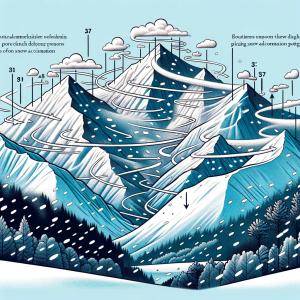
If the Earth Spun Backwards
The article The climate of a retrograde rotating earth from the Max Planck Institute for Meteorology, (website found here), presents a fascinating exploration into how Earth’s climate would differ if our planet rotated in the opposite direction. This counterfactual scenario provides a unique lens through which to understand the complex interplay between Earth’s rotation, geography, and climate systems.
Understanding Earth’s Climate Through a Mirror World
Imagine a world where the sun rises in the west and sets in the east – a retrograde Earth. This concept isn’t just a flight of fancy; it’s a powerful tool used by scientists to deepen our understanding of Earth’s climate dynamics. The study dives into this hypothetical scenario, using advanced climate models to simulate what our planet’s climate might look like if it rotated in the opposite direction.
Key Findings: A Shift in Weather Patterns and Ecosystems
The study found that a retrograde Earth would experience significant shifts in weather patterns and ecosystems. Key findings include:
- Altered Ocean Currents and Climate Zones: The reversal of Earth’s rotation would drastically change ocean currents and the distribution of climate zones. This would lead to different weather patterns, potentially altering the distribution of deserts, forests, and grasslands.
- Impact on Continental Climates: Continents would experience a switch in climate characteristics. For instance, areas that are currently deserts might become more temperate or vice versa.
- Changes in Atmospheric Circulation: The reversal would affect atmospheric circulation patterns, impacting global precipitation and storm tracks.
- Biogeochemical Shifts: The study also delves into how this change would affect ocean biogeochemistry, leading to shifts in nutrient distribution and potentially altering marine ecosystems.
Implications and Importance
This research isn’t just a theoretical exercise. By exploring such a dramatically different scenario, scientists can test the robustness of their climate models. It also helps in understanding the fundamental principles governing Earth’s climate. This could be crucial in predicting future climate changes and in the development of more accurate climate models.
Inspiring Action and Further Research
For readers, this study is more than a glimpse into an alternate reality. It’s an invitation to appreciate the delicate balance of our planet’s climate systems. Understanding how profoundly Earth’s rotation influences our climate underscores the importance of preserving our environment and adapting to climate change.
Concluding Thoughts
This work challenges us to think differently about our planet’s climate. It’s a testament to the power of scientific inquiry and modeling in enhancing our understanding of the world we live in.
Embark on a Scientific Adventure:
Join ‘This Week in Science’ and explore the universe of knowledge! Our weekly newsletter is crafted for educators and enthusiasts, bringing you the latest and most exciting scientific discoveries. Every issue is packed with cutting-edge research, breakthroughs, and captivating stories from the world of science. Subscribe now for free and transform your teaching and learning experiences. Embark on your path to becoming more knowledgeable and connected with the ever-evolving world of science.



